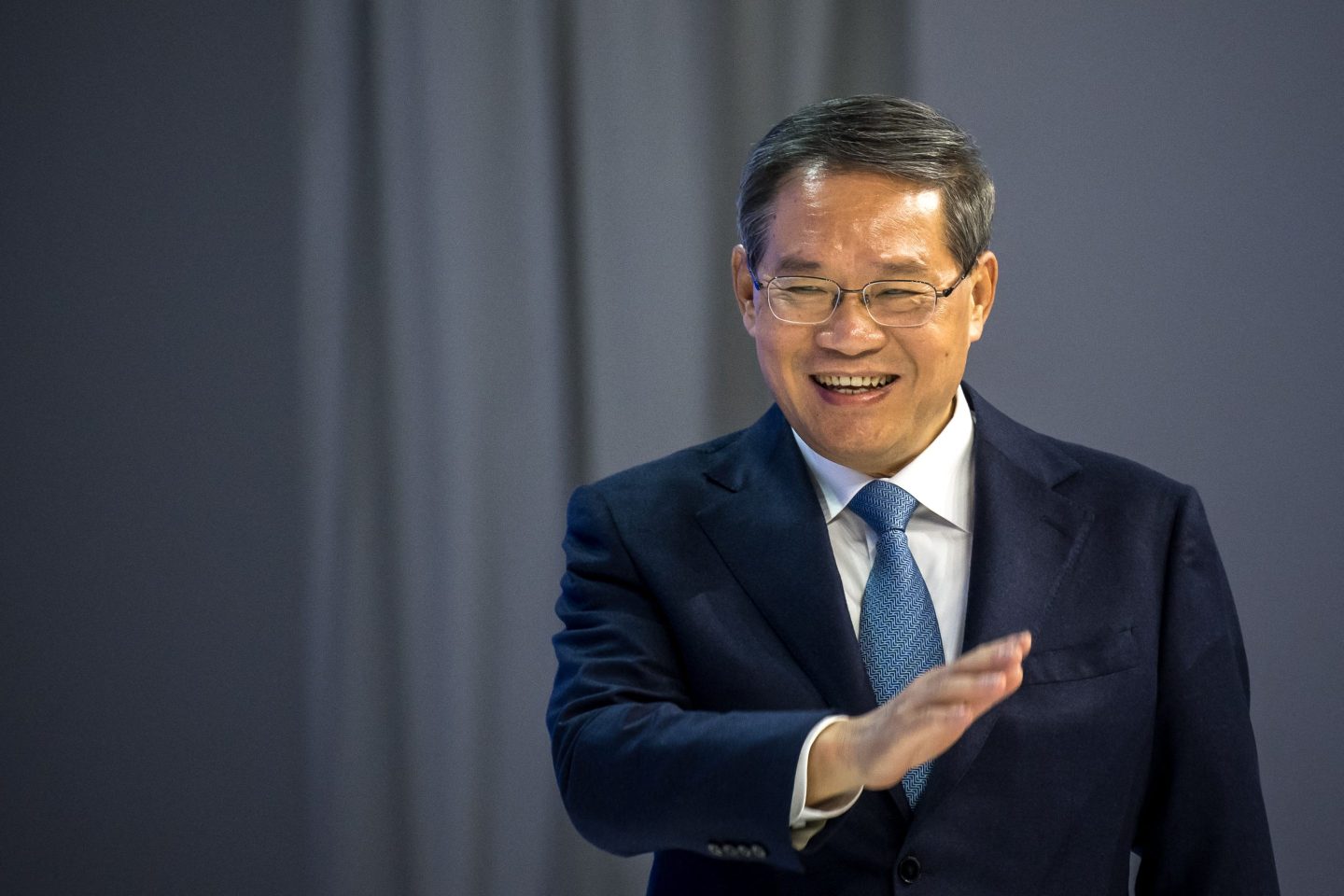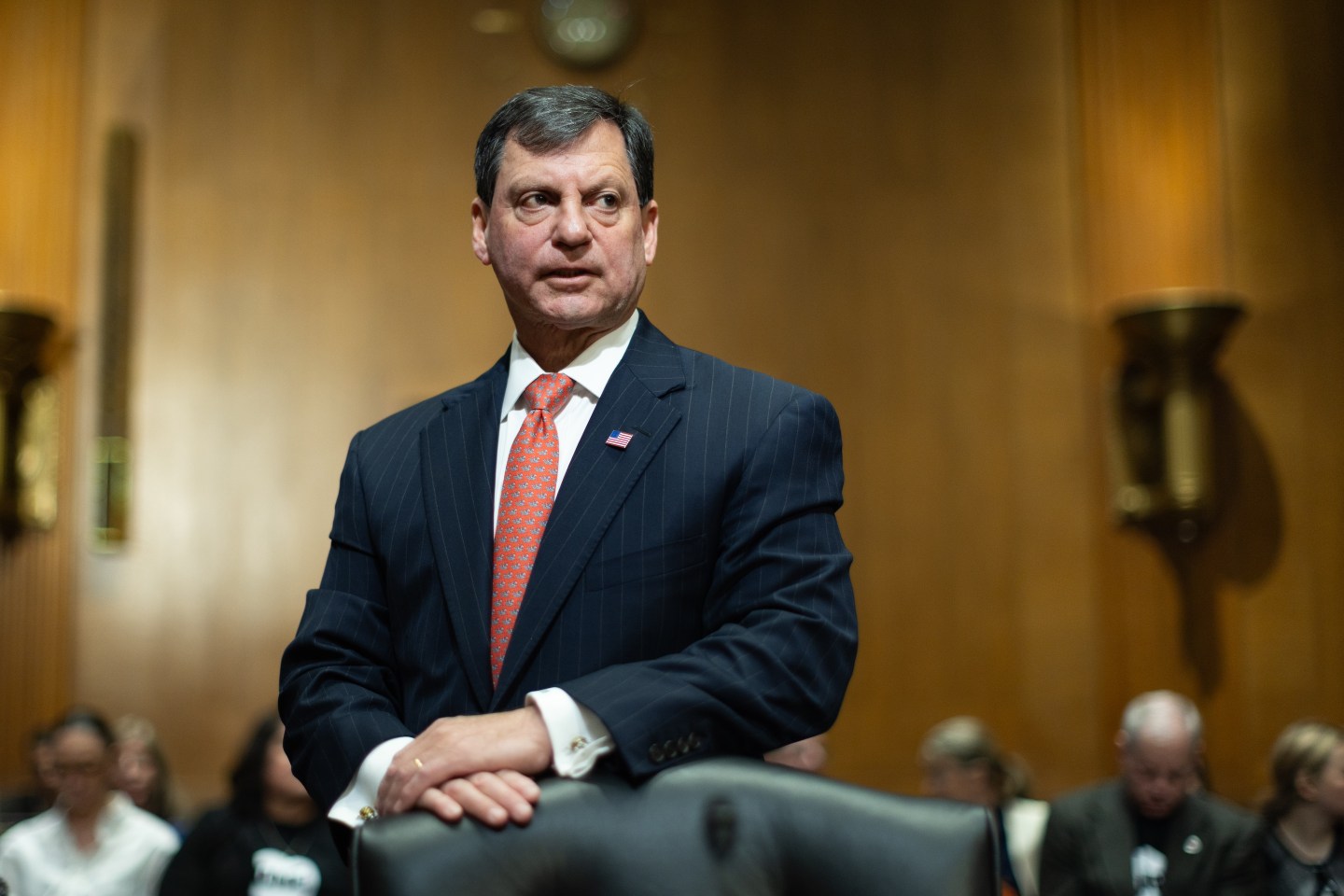Good morning from Davos.
Geopolitics is back on the global business agenda at the World Economic Forum’s Annual Meeting, and that can’t be a good thing for Davos Man.
In their respective speeches yesterday, Chinese Premier Li Qiang and Ukrainian President Volodymyr Zelensky presented the old and new faces of geopolitics.
Premier Li of China gave a speech Davos regulars have heard before. He proudly announced China’s latest growth figures—an unexpectedly robust 5.2% growth rate, as per official statistics—and made a pitch for global business to (re)invest in China. “No matter how the world changes, China will stay committed to the national policy of opening up and will open its door still wider to the world,” he said.
Yet that message is unlikely to have gone over as well as it once did. Amid Russia’s war in Ukraine and the prospect of more conflict-ridden Beijing-Taiwan relations, the West and its leaders are more likely to opt for “regionalization,” “friendshoring,” and “China + 1” options for trade and respond to other powers with restrictions and defensive tactics.
Ukrainian President Zelensky, meanwhile, made his case for Western nations’ continued military support of his country. “Regimes like [Russia’s] exist as long as they wage wars,” he told the Davos crowd, while “we—all we in the free world—exist as long as we can defend ourselves.”
But his position too is losing steam. Two years into the conflict, Russia’s assault on his country is in a holding pattern, making it ever more improbable that the “free world” will return if and when the war ends. It’s also increasingly doubtful that Ukraine’s key Western allies will continue to buy into Zelensky’s narrative, whether in the U.S. or Europe. Trump’s victory in Iowa and the rise of populists in Europe suggest as much.
Two conversations I had with leaders here embodied the ‘end of an era’ tone that accompanies this new reality.
“My biggest worry is that the global situation on peace and security further deteriorates and then affects all the other domains of global cooperation, such as climate, health, technology, and trade,” WEF president Børge Brende told me, commenting on a joint WEF-McKinsey report that shows peace and security cooperation in free fall.
Fresh off a trip to China, Belgian Prime Minister Alexander De Croo, who holds the rotating EU Council presidency this year, told me he wasn’t planning on re-embracing a pre-pandemic type of trade relationship with China anytime soon. “Sometimes, China can be a partner,” he told me, “but sometimes it can be a competitor, and sometimes it can be a rival.”
If China stops dumping practices and other types of anti-competitive state aid, the EU will play ball, he said. But that will be based on China being trustworthy, not on Europe having blind trust. “If there’s no foul play, then let’s go,” he said. That’s hardly an enthusiastic endorsement from Europe’s most globalized and most free trade-dependent country.
More news below.
Peter Vanham
peter.vanham@fortune.com
@petervanham
TOP NEWS
CMO turnover
Companies like UPS and Walgreens are pushing out their chief marketing officers. Marketing is now so tech-driven and reliant on data that it touches on other C-suite responsibilities. “Today, an executive has to be much more of a generalist,” says Stephan Meier, a professor at Columbia Business School. Fortune
Getting promoted as a hybrid worker
Hybrid workers are just as likely as fully in-office workers to be promoted, according to a working paper from the National Bureau of Economic Research. Yet fully remote workers are more likely to be passed up for promotion. The average worker in the U.S. goes into the office around 3.5 days per week. Fortune
China's youth unemployment
China resumed publishing youth unemployment data after a five-month hiatus, reporting that 14.9% of those aged 16 to 24, excluding those in school, did not have a job. The country spent much of 2023 battling a youth joblessness crisis as graduates struggled to find work in sectors like construction and tech. China reported a record-high 21% youth unemployment rate for June before it paused releasing the data, citing a need for “further optimization.” CNBC
AROUND THE WATERCOOLER
Bank of America CEO Brian Moynihan isn’t worried if rates don’t come down—for the bank that could even be a ‘good thing’ by Eleanor Pringle
Microsoft CEO Satya Nadella is an AI winner. He doesn’t like to talk about the potential losers by Jeremy Kahn
Commentary: Toxic customers, unproductive employees, and contagious pessimism: How the hopelessness epidemic is taking the workplace by storm by Jennifer Moss and Jen Fisher
The world’s 5 richest people, from Elon Musk to Jeff Bezos to Warren Buffett, doubled their wealth to $869 billion since 2020, report finds by Paolo Confino
This edition of CEO Daily was curated by Nicholas Gordon.
This is the web version of CEO Daily, a newsletter of must-read insights from Fortune CEO Alan Murray. Sign up to get it delivered free to your inbox.













